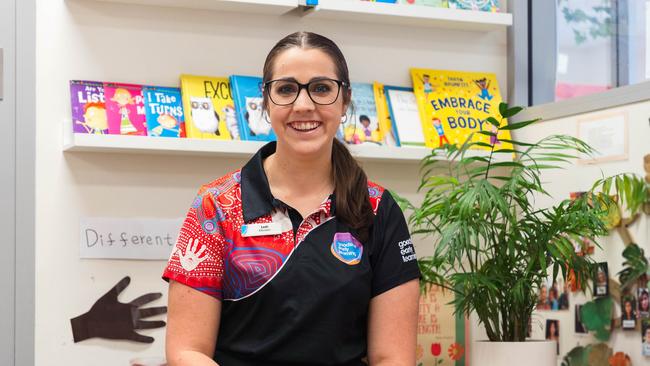How to negotiate a pay rise with confidence in amid cost-of-living crisis
Half of Aussie workers believe they’re underpaid, but only a fraction feel comfortable requesting a pay rise as redundancy fears loom.

Careers
Don't miss out on the headlines from Careers. Followed categories will be added to My News.
Confidence to negotiate salaries has slumped, with Aussie workers fearful they could be made redundant if they ask for more pay.
Just 17 per cent of workers feel comfortable requesting a pay rise in the current economic climate, compared to 27 per cent who would be confident to negotiate their salary in “normal” conditions, research from SEEK reveals.
Further findings from payroll provider ADP show half the nation’s workforce are unsatisfied with their salary and believe they are underpaid in their role as cost-of-living pressures continue to bite.
The case for higher pay
Predictions of a recession have made workers nervous about their job security and unwilling to do anything that may cause trouble with their employer, SEEK career expert Leah Lambart says.
“People think it’s not the right time to ask for a pay rise,” says Lambart, also the founder of Relaunch Me.
“At the moment, where there’s the potential for lay offs and the potential to be made redundant, there’s that fear that if I’m seen to be pushy or asking for more money then I will be asked to leave.”
While Lambart agrees workers are wise to refrain from asking for more pay if their company is making staff cuts, she says those at unaffected organisations should feel comfortable requesting a salary review if they have legitimate reasons.
“If you know you are grossly underpaid then that’s a good reason to be asking for a pay rise,” she says.
“If you are working well above and beyond what’s in your job description and what you have been recruited for then that’s definitely a good reason.
“People are still getting pay rises so … arm yourself with research on what people are being paid to do the same role and … document your achievements and where you have been able to exceed KPIs or have added significant value to your organisation and then speak to your manager.”
Struggling to make ends meet, however, is not a valid reason for more pay, Lambart says.
“If your rent has gone up, that’s nothing to do with your employer,” she says.
“Bringing personal reasons into (pay negotiations) is completely inappropriate and is where people often go wrong.”

‘Didn’t even have to ask’
Early learning educator Leah Hurtado, along with most of her colleagues at Goodstart Early Learning, will this month receive a 7 per cent wage rise as part of an initiative by the non-profit provider to attract more staff.
“The pay rise is going to make covering my day-to-day living costs much easier as the price of everything goes up, from petrol, to groceries, my bills and more,” Hurtado says.
“It feels good to be recognised by your employer for all your hard work and it’s nice to know my pay’s going up by seven per cent without even having to ask for an increase.”
Goodstart chief executive officer Ros Baxter says the pay rise, which matches the current inflation rate, is the largest in the company’s history.
It will see starting salaries for graduate teachers at Goodstart rise to $80,000 – more than new teachers are paid in most government schools across Australia. It will also ensure Goodstart educators are paid at least 5.3 per cent more than award rates, in a sector where most educators are paid only the minimum legal wage.
“There is a national shortage of teachers and educators and we are doing what we can to be an employer of choice,” Baxter says.

Great expectations
Despite four in five Australians securing an average five per cent pay rise last year, ADP managing director Kylie Baullo says most workers have experienced a real wage cut as a result of surging inflation.
The ADP research shows Aussies expect their pay to keep up with the cost of living, with four in five workers anticipating a salary increase within the next 12 months.
Almost half of workers believe their pay will increase by up to six per cent and one in 10, by 10 per cent or more.
“It’s no surprise employees are expecting their pay to keep up with the ongoing (cost-of-living) crisis … but, in the same breath, organisations are going through their own challenges with supply chains and the increased cost of running a business,” Baullo says.
“The last thing you want to do is put your hand out without having any means to demonstrate you are adding extra value to an organisation.
“To get that pay rise, it might require putting your hand up to take on higher duties or doing things outside your normal job description.”
Great expectations
• More than half (58 per cent) of Aussie workers anticipate a salary increase in the next 12 months
• An additional 26 per cent of workers expect to get a promotion
• Almost half (49 per cent) of workers expect an uplift in pay of up to six per cent
• One in 10 workers expect to receive a pay rise of 10 per cent or more
• About half (49 per cent) of workers feel there are underpaid in their current role, while similar numbers (58 per cent) are not satisfied with their salary.
Source: ADP
Originally published as How to negotiate a pay rise with confidence in amid cost-of-living crisis


